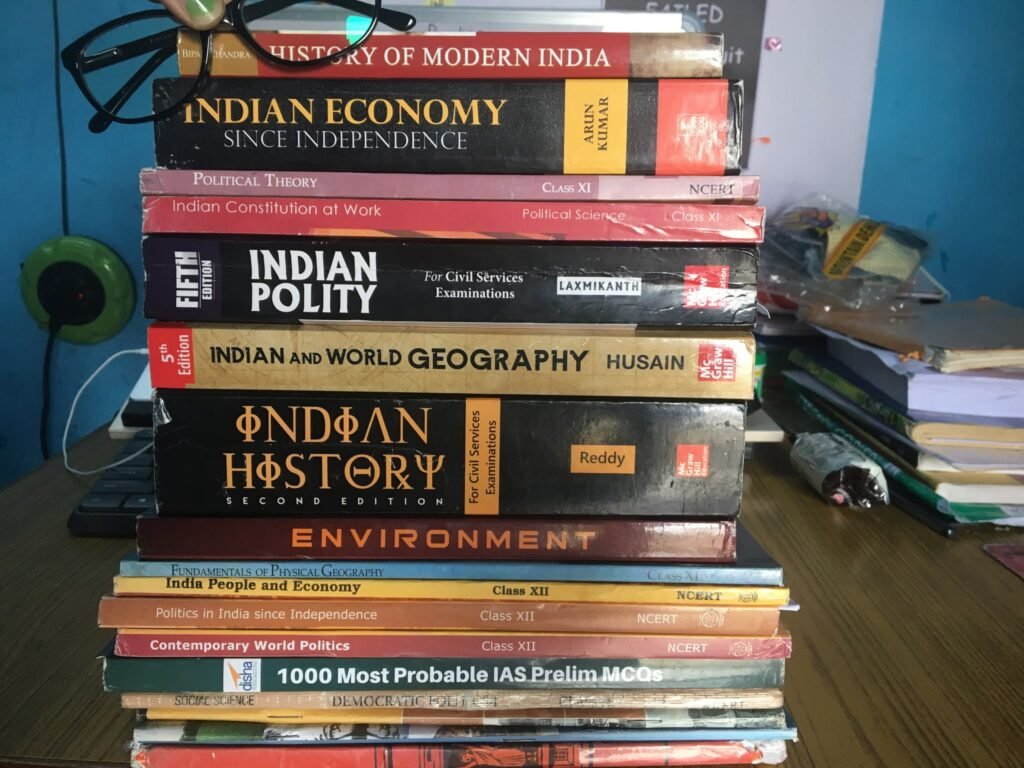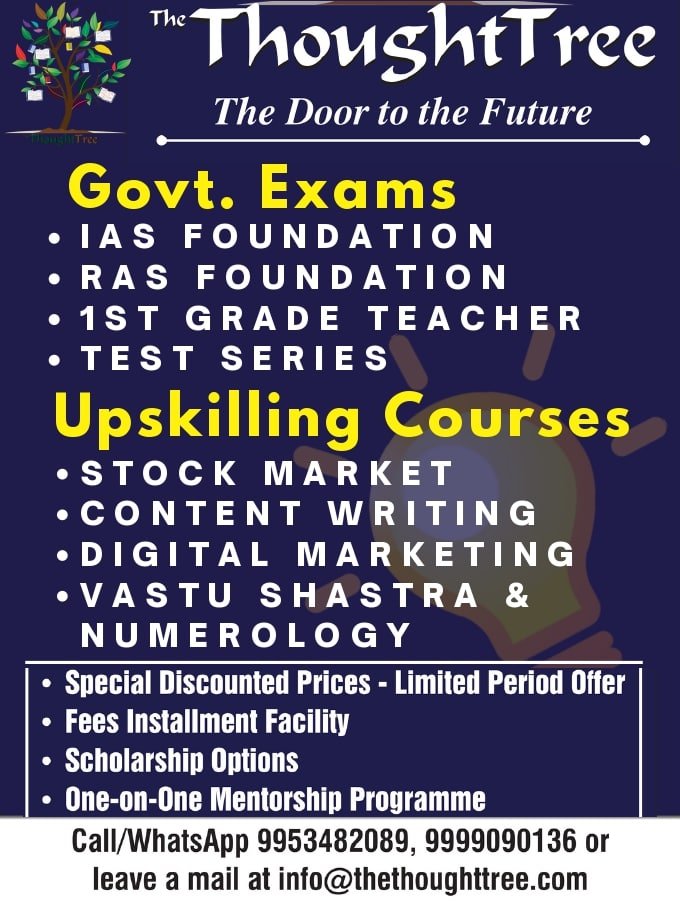“So what were the Books for UPSC Prelims?” The question, “How many books are too many Books for UPSC Prelims?” is one that crosses the minds of almost every hopeful person while discussing the IAS reading list. There is a good chance that you will end up purchasing the whole bookstore’s stock to compile a comprehensive UPSC booklist for the Civil Services exam. But hold on, you should prioritize and get the best ones first. When you have time to settle down with a book, the idea “too many books, too little time” may cross your mind.
So, to help you relax a bit and focus more on your studies, we have collected a comprehensive booklist for UPSC that’s also suggested by high achievers. If you want to be sure you don’t stray too far from the required material, stick to the UPSC-approved reading list. Note that you need not read each book in its entirety. In this approach, you may avoid distractions and concentrate on the material covered by the UPSC exam. Let’s go through a UPSC booklist that will aid you in your studies to the fullest extent possible.
Booklist for UPSC CSE Prelims

Even though the booklist for UPSC would vary in response to your prior knowledge and competence, here is a complete booklist that both new aspirants and experienced people may refer to for the UPSC Preparation requirements. Books may be useful for both the Preliminaries and the Mains Exam. First, you should familiarise yourself with the course material and examination format.
UPSC Prelims Preparation Tips for Beginners – Roadway to Success
Polity
- Indian Polity by Laxmikanth
Environment and Biodiversity
- Shankar IAS book
Ancient and Medieval History of India
- Old NCERT by RS Sharma
- Old NCERT by Satish Chandra (Selective Reading)
Modern History
- A Brief history of Modern India- Spectrum Publications
- NCERT by Bipan Chandra (For the period 1700s to 1857)
- India’s Struggle for Independence – Bipan Chandra (Selective Reading)
Indian Art and Culture
- An Introduction to Indian Art—Class XI NCERT
- Center for Cultural Resource and Training (CCRT) material
- Heritage Crafts: Living Craft Traditions of India-NCERT
- Chapters related to culture in Ancient and Medieval India NCERTs
Economy
- Indian Economy by Ramesh Singh
- Economic Survey (Selective reading from a Prelims perspective)
- The Hindu
- Macroeconomics – NCERT Class XII
- Indian Economic Development – NCERT Class XI

General Science
- The Hindu (Note down and read about the latest scientific terms, discoveries and inventions frequently mentioned in news)
- Google and YouTube
- General Science books – IX and X standard
Govt Schemes
- Govt schemes compilation by the website Civils Daily
Geography
- Fundamentals of Physical Geography XI NCERT
- Fundamentals of Human Geography XII NCERT
- India: Physical Environment XI NCERT
- India: People and Economy XII NCERT
- PMFIAS (Excellent resource for understanding complex topics)
- Certificate Physical and Human Geography: GC Leong
General Trivia (Eg: Global groupings, Reports, Institutions, Rankings etc)
- Any coaching material
Current Affairs
- The Hindu
- Civils Daily
- ForumIAS
Read More: What is the Right Age to Start UPSC Preparation?
UPSC Prelims Online Books
Currently, applicants also have an opportunity to download e-books. The candidates may get their hands on them since they are widely distributed on the internet. For every topic, a new book is needed, and aspirants cannot take the complete bundle alongside them anyplace.
Hence, these UPSC online books are readily accessible and can be viewed from anywhere. Candidates may download them for free via the internet and take along their Documents on their computers or tablets. Since applicants can now acquire the knowledge they need in a matter of seconds without having to go through every detail under every subject, these e-books, too, have grown popular. As an example, aspirants may readily access and download NCERT books, monthly periodicals, and other significant materials in PDF format from the internet for free usage in preparation for the UPSC exam.
But again, one book is not enough, and aspirants would need different Books for UPSC Prelims for different chapters, and it gets so messy and uncomfortable to keep opening different PDFs every minute. It would somehow break the flow of study. Therefore, The Thought Tree has a free library where students can sit and read different books and make notes as well. This saves time, and student can open 3-4 books at once and make proper notes unlike e-books, when student can open just one PDF at once.

Read the Best UPSC Prelims Books Only
There is a lot to learn for the UPSC exam, and you’ll need at least a year to study everything in the curriculum. As a result, you can’t afford to squander your time on books that aren’t up to par, lest they provide you with false and unverified information. It might be challenging to relearn what you’ve read if you find yourself in this situation.
Studying the suggested reading material would allow you to take notes as you go along. There are several publications that supply knowledge tailor-made for the IAS examination. For reference, Laxmikanth for Polity would be a book that you should always study if you are sitting the UPSC prelims. There have been several inquiries that clearly stem from reading this book.
In addition, many publications like the one described above provide material in a ‘notes’ style. That makes them ideal for studying for the IAS. Time spent attempting to jot down notes is unnecessary.
Numerous books exist, and many of them are both well-written and informative. However, you must evaluate whether they are helpful for the UPSC exam. Academics and researchers may find these interesting. However, this is not the case with the UPSC prelims. Thus, you must get UPSC books that will aid in your studies and ultimately improve your performance in this exam.
The following should be kept in mind while you begin studying for the Prelims with these books:
Besides these books, grab a copy of the curriculum and analyze it attentively.
Then when you begin, I propose that you start with NCERT books. Read and review them systematically to acquire perfect intellectual understanding. They constitute the basis of your understanding which will aid you significantly through all phases of the test.
Do not be alarmed by the large list of books. For a novice, one year is more than enough to learn the whole curriculum of GS (prelims and mains) and electives.
When I wrote “selective reading” in the book list, I meant that you don’t have to read the whole book. Go through the last five years’ exam pattern to understand the sort of questions UPSC normally asks. You’ll get valuable insight into what matters and what doesn’t.
If you are getting coaching, you should definitely read your notes. But please bear in mind that you cannot merely study those coaching notes and overlook these regular books. Therefore, even if you use your coach’s notes, you must still study books and be intimately familiar with the subject. Coaching notes can surely make your duty simpler, but then you still have to read over the books preferably once.
For all topics, you have to juxtapose current happenings over it. For example, in the Polity subject, other than studying the static theoretical element, you really have to keep a watch on current developments. If the government proposes changing the Constitution to implement GST, for instance, you should familiarise yourself with both the proposed change and the process by which it would be implemented. Apply this throughout the board.
It is essential to review before finals to ensure success. You will be unable to recall anything you have read if you do not have it. So please allocate appropriate time to review before the final evaluation.

Mindset to Confront the UPSC Prelims Exam
Ten days before the prelims is a period when your thoughts are likely to be filled with anxiety and uncertainty. Even though you must have studied properly for the test, covering all the materials, some of you may be concerned that you haven’t covered all of the material on a certain subject, while others may be wondering whether they’ll make the grade for the mains. Try to keep in mind that feeling anxious is normal at this moment and that everyone goes through it.
We have extracted a few tips to assist you to do well in the exam.
In the last few days before the exam, if you try and read whole new material that you have not studied before, you’ll just stress yourself out. Just refer to everything you have previously read. Revision is the ultimate key. How successfully you do on the real exam relies on the level of revision you conduct in these 10 days.
Stay calm. Don’t get stuck on one subject while you’re studying. Your objective should be to review all the subjects meticulously before the last day.
Questions are intended to be balanced and will be asked throughout the course. If you struggle in one area, don’t worry about it. You may make up for it by focusing on your strengths. For example, if you are anxious about Indian Art and Culture, do not stress out. You could miss out on a few questions, but you’d still have plenty more to solve.
Just a day prior to the examination, ensure that you receive 7-8 hours of decent sleep. After a full night’s sleep, your mind will be refreshed and your memory will be sharp.
Many applicants (particularly engineering graduates) tend to be indifferent to CSAT Paper 2. I’ve seen folks who answer just 60 questions and assume that’s enough already to qualify them. However, there are some who are even more rash and walk out of the auditorium a full half-hour early. Don’t be that careless brat. Your grades, not your boldness will determine your qualification for mains. Remember that just because the exam is qualifying, UPSC is not going to offer it to you on a platter. This is why they’re still consistently jacking up the difficulty level over the last several years.
So if you find it difficult to prepare for UPSC prelims on your own, which is actually very very difficult, you must join The Thought Tree’s IAS course. The course will provide you with a complete package of lectures, notes, reading material, books, mock tests, etc. This course is a complete package that one needs to prepare for UPSC prelims.

FAQs
Can I join online coaching from The Thought Tree?
Yes, definitely! You just need to enroll yourself with the contact details mentioned on the website.
Can I pay the fees in installments?
Yes, The Thought Tree has a very affordable and flexible fee structure.
Will I get notes and books if I take online coaching?
Yes, you will get everything that an offline student would get. We do not differentiate there.
Are just NCERTs enough for UPSC prelims?
No, it is not. You have to read other books and take notes.
Are the books mentioned here enough to get through UPSC prelims?
Yes, these books, to an extent, are enough to crack prelims. However, you can refer to other books as well.
What if I have some doubts while reading books? Will I get to solve it with T3 mentors?
Of course! We are always here to help you. We also provide one-on-one mentoring sessions.





